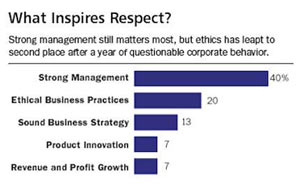The announcement came during stock market trading hours–GOLDMAN SACHS SUED BY SEC.
Some complained that the SEC should have waited until the markets closed. But the damage to Goldman Sachs shareowners and the markets was already done.
A week later more news came out on the weekend–
NEW YORK (MarketWatch) — Emails at Goldman Sachs Group Inc. released by a Senate subcommittee show just how much financial reform is needed, two leading senators said on Sunday.
The emails, released Saturday, show executives and other employees at Goldman Sachs knew that the firm was making money on the collapse of the housing market, largely by betting on the failure of mortgage securitizations and derivatives like the ones it bundled and sold to investors, whose failure led to the financial crisis.
“There is something terribly wrong about a country like ours where you make billions of dollars by making nothing and producing nothing but taking advantage of an economic situation, Sen. Christopher Dodd, D-Conn., said Sunday on Meet the Press.
What makes this emerging story even more interesting is that Goldman Sachs appeared on Barron’s February 15th cover story on The World’s Most Respected Companies; it was rated 30 out of 100 companies. Barron’s noted —

I am not faulting Barron’s (this is a good publication and I am a subscriber). Rather, this highlights the continuing problem we have with Corporate Ethics.
This story has another interesting and promising aspect: when considering a similar deal, Bear Stearns turned it down because of its Ethics conflict. As reported in the Guardian—
Bear Stearns, the Wall Street bank now part of JP Morgan Chase, turned down a similarly structured deal to the one under scrutiny between Paulson & Co and Goldman Sachs because it “didn’t pass the ethics standards”.
The bank, which collapsed during the credit crisis, “smelled trouble” when John Paulson, the hedge fund’s founder, approached it with the idea of creating an investment that the fund could bet against, according to author Gregory Zuckerman in his book on Paulson, The Greatest Trade Ever.
As noted in the MarketWatch item above, the Goldman Sachs incident is once again motivating a hair trigger demand for more regulation. When will there be a realization that you cannot regulate ethics?
This is not an academic or esoteric issue. When people are no longer restrained by objective notions of right and wrong, nothing is safe—not your investments, not your house, not your neighborhood, not you! What we’re talking about, ultimately, is the moral consensus upon which the rule of law rests—that’s the very foundation block of Western governments and societies.
When ethics fail in the commercial markets, more and more stringent regulations are certain to follow. It’s the only way to assure the integrity of financial and commercial transactions. But we lose freedom in the process.
The problem is that regulation, however well intended, can’t solve the ethical problem. The best regulation can do is to define what people can get away with by drawing a line they can’t cross. It does not answer the question, “What is the honest way to do business?” Crosswalk.com Commentary
In one of my recent posts, I mentioned that Ethics, to be effective, must be well integrated within the organization’s Culture; so much so that it guides daily decisions of all employees-
Perhaps the key reason is that most companies don’t realize that ethics must start with “the tone at the top”. Board and C-Suite members must be visible in promoting ethical behavior and putting in place an ethics program that promotes an ethics culture. This takes considerable effort and time since it must be embedded in the existing corporate culture.
Bravo to Bear Stearns for showing that Corporate Ethics can work, sometimes.
Lucy is Editor at Corporate Eye